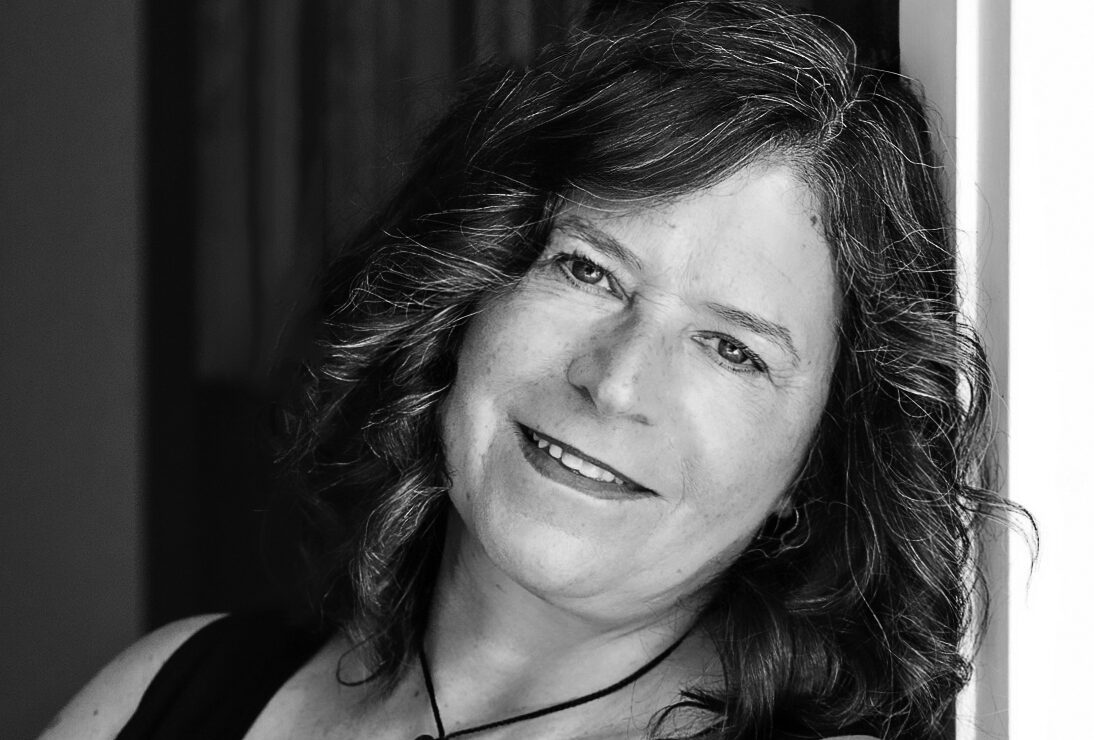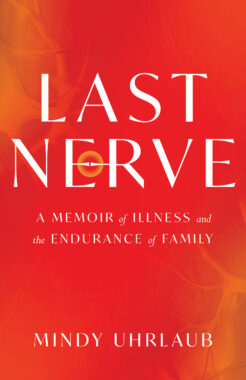An author discusses ALS and how she became an activist
A Q&A with Mindy Uhrlaub about her memoir, 'Last Nerve'

Mindy Uhrlaub's diagnosis led to her ALS activism. (Photo by Kathleen Harrison)
Mindy Uhrlaub, an author and activist for amyotrophic lateral sclerosis (ALS), has spent a good part of her life caring for loved ones.
Soon after she became a mom in 2003, her husband learned he had cancer.
“Right as my older son was taking his first wobbly steps, my husband was diagnosed with the first cancer that he had,” says Uhrlaub, who lives in San Anselmo, Calif. “So I’ve been in this role for a really long time.”
In her new book, “Last Nerve: A Memoir of Illness and the Endurance of Family,” Uhrlaub writes about another difficult episode that began in 2018. As her family faced several serious challenges, she found out that she carried the C9orf72 mutation for ALS.
ALS News Today spoke with Uhrlaub about her book, caregiving, and her life’s mission: ALS activism.
This interview was excerpted and lightly edited for clarity.
AB: I know that you recently published your memoir, “Last Nerve.” Can you tell us what it’s about and what inspired you to write it?
MU: “Last Nerve: A Memoir of Illness and the Endurance of Family” is a story about the years 2018 through 2022, when my family was going through three or four really difficult things.
My husband had stage 4 lymphoma, and I was his primary caregiver. My son had kind of gone off the rails and had to be sent to a residential facility for school, and my mom was dying of ALS, amyotrophic lateral sclerosis. She was about midway through her journey with that when I got my genetic test and found out that I had the same gene that she had that was causing her ALS.
And at that point, it was believed that there was about a 90% chance I would develop symptoms sometime in the second part of my life. And the story is really about the resilience, the fortitude that it takes to get through those triple threats or quadruple threats and kind of what it’s like to be part of the sandwich generation, where you’re taking care of spouses and parents and kids and sort of about how you find time to heal yourself during that sort of ordeal.
When exactly did you find out that you had the gene and what was your reaction to it?

Her memoir starts with her ALS diagnosis. (Courtesy of Mindy Uhrlaub)
Actually, I found out in 2018, the summer of 2018. And my reaction was sort of, I don’t know, it’s hard to describe it. It was a little bit like if I had a boil on my backside. It sort of only hurt when I sat with it the wrong way, because I was going through so many different things. It really didn’t seem like a big deal to me, until I started thinking about the fact that I might have passed it on to my children who were already in middle school. And that’s when it really started to bother me.
Can you talk about your ALS activism? What exactly do you do in your role as an activist?
Well, I guess starting from the beginning, I have enrolled in more than 20 longitudinal studies of ALS and FTD because C9 carries frontotemporal degeneration on it also. So, I participate in research, and that means giving spinal fluid and blood and time and cognitive tests, and I’m always doing that. In fact, today I’m about to put on my activity trackers to work on research as a participant.
I also was part of the familial team at I AM ALS, and we’re made up of genetic carriers of ALS. And right around 2022, we decided that we needed a space of our own. So we started an organization called End the Legacy. We are a group of genetic carriers and caregivers of genetic carriers and family members who are at risk. We all support each other through this knowledge and through activism, education, and policy work. In fact, I just got off the airplane from our second annual summit, so we’re very proud about that.
Because of my activism, I was also nominated onto the committee that wrote the “Living with ALS” report of 2024. That was a huge honor for me. There were 99 people interviewed for those positions, and they settled on 18. And I was the only genetic carrier among doctors and ethicists and other ALS patients. And so that was fantastic.
Most recently I wrote my memoir, “Last Nerve.” And so that’s doing very well and getting a lot of attention. I feel like I was put on this earth to do this, I really do. I absolutely love being an ALS-FTD activist, and I think that there was a certain point at which I was really scared that maybe I would die before there would be a cure. But I figure if there are other activists out there like me, the chance that we’ll find a cure is much better.
You just mentioned policy work. Can you elaborate on that a little bit?
So, we actually went to DC and spoke with senators and representatives about genetic nondiscrimination. Right now, you know, it’s not a great time to be an activist in DC, especially when it comes to medical care. With cuts to the NIH [National Institutes of Health] and scaling back of research at universities, it’s really a problem.
Genetic discrimination occurs in a lot of different ways. When you’re a genetic carrier of this kind of a gene, you can lose your medical care. You can lose your long-term care insurance. You might be denied access to life insurance or disability insurance.
And so we want to change that. There’s already GINA, the Genetic Information Nondiscrimination Act, which basically says you can’t lose medical care over a genetic status, but they can still deny you all the other insurance products that you need as an ALS patient. And so we’re painted into a very tricky corner.
So I spoke with different members of the office of Adam Schiff and other California representatives about that. And it was very exciting to be on the Hill and speaking with people, with my fellow genetic carriers from in the Legacy.
And with regard to genetic discrimination, would you say it’s mostly a question of insurance?
Well, it mostly is insurance, but when I think about it, a friend of mine who is a genetic carrier will not allow his son, who is in the military, to get tested because he doesn’t want him to lose his job.
So, would they find out about it if it turned out that he was a carrier?
Well, yeah. If you get tested, you have to do it through a research study because otherwise it ends up on your medical record. And your medical record is visible by a lot of different people: other doctors, potential employers. So I think that we actually are discriminated against by neurologists who say things like, “Oh, people with the C9 gene, you know, tend to have psychological problems.” Well, to me, that’s discrimination.
Is there any basis for this kind of statement, or do they just say that?
I think, really, when you dissect it and I can only say, from the patient advocacy point of view, I think when you come from a family who’s dying off of a fatal neurodegenerative disease, it can make you a little anxious. And I think that people see that anxiety as neurosis or as paranoia or whatever it is.
But the reality of C9 is that we also carry FTD. So because some people get dementia at a very young age, I mean, to say that they have psychological problems, well, duh. I mean, it’s a neurological problem. But I don’t think that everybody with C9 has a psychological problem. And I just think it’s unfair for people to treat us like that.
What are some of the challenges you faced in your role as a caregiver — for your husband, son, and mom?
I would say the biggest problem at the time, and I’m going to speak frankly here: I was going through menopause at the time, so I couldn’t sleep. And, you know, that sucked. I don’t know how else to say that, to have all of these different burdens during the day and then have to not sleep at night and be sweating. That was hard.
I always took care of myself in certain ways. I was always really clear-headed about working out, getting exercise at least four or five times a week. I just made myself do it because it was the only thing, well, it wasn’t the only thing that kept me sane. I had a really good therapist that I saw once a week. And it helped that I didn’t have a 9-to-5 existence having to punch the clock for anybody, but I was punching the clock for ALS, mental illness, neurological problems, and cancer at the same time.
So I was doing what I could. The other things I did for self-care involved opening up to friends when I saw an opportunity for getting together with people that I love, my book club, and all the other things. I tried to have as much of a normal existence as I could, despite the fact that sometimes I was spending the afternoon in the hospital or going out to Utah to visit my son or schlepping across the country to see my mom. I think that kind of fortitude is something you have to either have it or you don’t, but you really have to fight to take care of yourself when you’re in this kind of a role.





